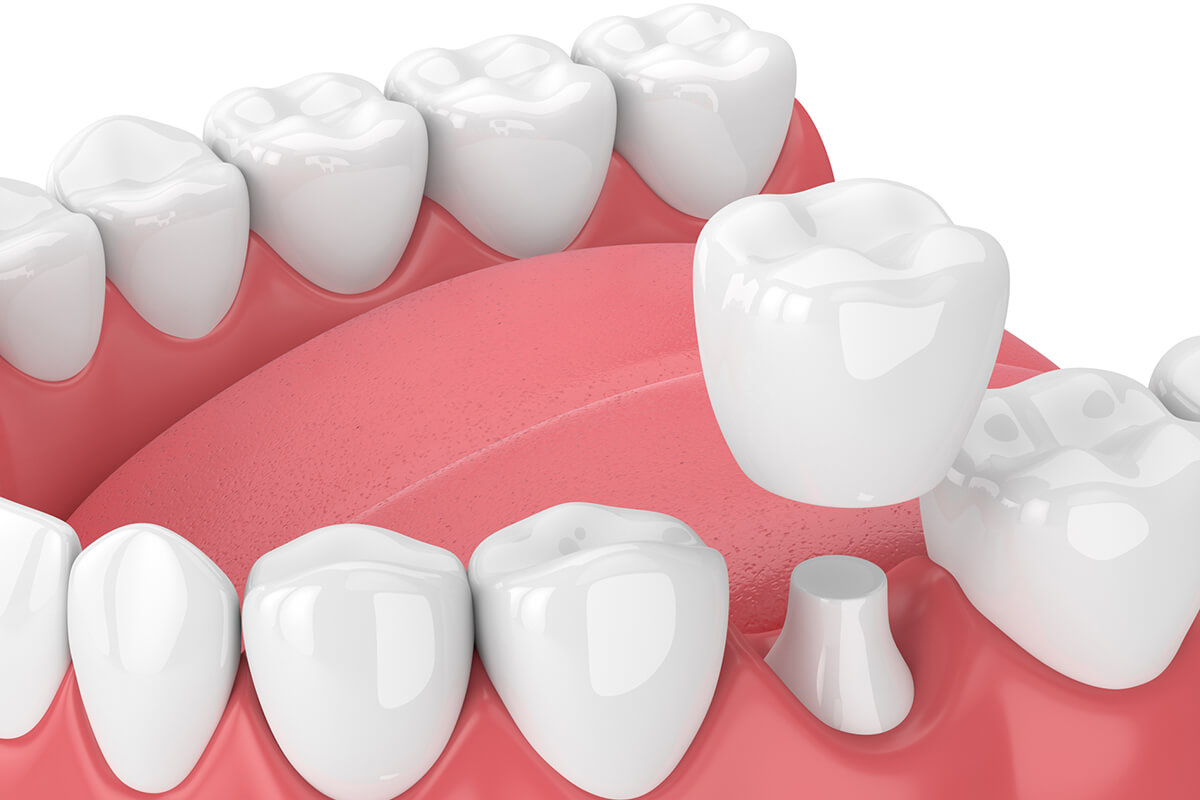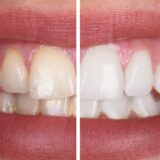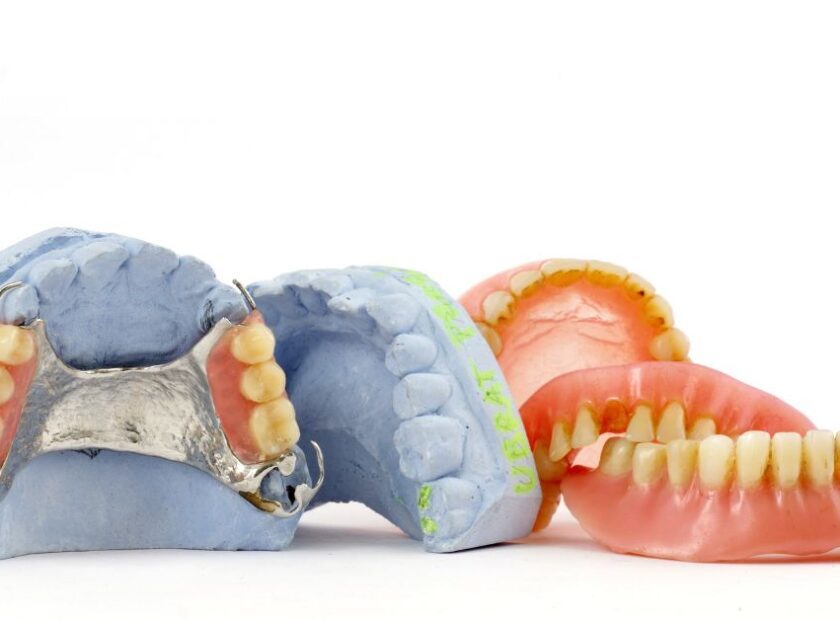how long does a dental crown take

A dental crown procedure typically takes two to three weeks from the initial appointment to the final placement. The process involves having an impression taken of the tooth, which is then sent to a lab for the crown production process.
During this time, a temporary crown may be placed between appointments. Factors such as the type of crown material being used can affect the length of the procedure. While the procedure itself is not painful, patients may experience discomfort or sensitivity afterwards.
We will explore the dental crown procedure in more detail, including what to expect during the process and how to care for your crown after placement.
Factors Affecting Time
The time taken to get a dental crown depends on various factors, such as the material used to make the crown and the manufacturing process. Porcelain crowns usually take longer than metal ones. The dentist will also need to take an impression of the tooth and create a temporary crown to be worn until the permanent one is ready, which can take two to three weeks.
| Factors affecting the time for dental crown placement |
| Material used to make the crown: The type of material used for the crown affects the time taken to install it. Porcelain crowns take longer because they require more complex manufacturing steps, whereas metal crowns are simpler and faster to make. |
| Number of Crowns Needed: The number of dental crowns required will also affect the time taken. Generally, more crowns mean a longer placement time. |
Getting dental crowns placement is a common procedure that requires multiple steps. The time it takes for the procedure to complete can vary depending on different factors. The material used for the dental crown and the number of crowns needed can both affect the duration of the process. Porcelain crowns take longer to manufacture, and if you need multiple crowns, it might prolong the procedure. On the other hand, metal crowns are quicker and simpler to make, resulting in less time. Overall, it’s best to consult with your dentist to better understand the timeframe for getting a dental crown placement.
Single Visit Crowns
Single visit crowns are becoming more popular as patients want to avoid having to come back for a second appointment. With the use of advanced technology, a dental crown can be made in one visit which usually lasts around 2-3 hours.
A dental crown typically takes two visits to complete, but with the advent of CEREC technology, some dental offices now offer same-day single visit crowns. CEREC technology uses computer-aided design and milling to create a custom-made crown in the dental office. The process involves creating a 3D impression of the tooth, designing the crown using special software, and then milling it from a block of ceramic material. While same-day crowns offer the convenience of completing the procedure in one visit, there are some drawbacks to consider. The crowns may not be as precise as lab-made crowns, and the ceramic material used may not be as strong as traditional materials. It is important to discuss all options with your dentist and choose the best option for your individual needs.
Traditional Crowns
The length of time it takes to get a dental crown depends on the type of material used, with porcelain crowns taking longer to make than metal crowns. Generally, the process takes two to three weeks, during which time a temporary crown is usually placed between appointments.
Discomfort or sensitivity may be experienced after the anesthesia wears off, but the procedure itself should not be painful.
a dental crown take to complete? Traditional Crowns When it comes to traditional dental crowns, the process usually takes two separate appointments. During your first appointment, the dentist will prepare your tooth by removing any decay and shaping it to fit the crown. Then, they take impressions of your tooth and place a temporary crown until the permanent one is ready. The second appointment involves cementing the permanent crown onto the tooth. The first appointment can take up to an hour, while the second appointment may take around 30 minutes to an hour. Typically, it takes two to three weeks to get the permanent crown after the first appointment. The procedure is not painful as the tooth and surrounding tissue are anesthetized. After the anesthesia wears off, you may experience some discomfort or sensitivity. The length of the procedure also depends on the material used to make the crown. Porcelain crowns take longer than metal crowns as they require more intricate steps in the manufacturing process. Metal crowns can be made much faster and require fewer steps to complete.
:max_bytes(150000):strip_icc()/numbing-the-tooth-in-a-dental-crown-procedure-1059036_final-788dfa05acf24255aa0d406f45df1b31.png)
Credit: www.verywellhealth.com
Timing Of The Process
The entire process of getting a dental crown usually takes two to three weeks. The first appointment involves taking impressions of the teeth, followed by preparing the tooth for the crown, which involves removing the outer portion of the tooth. The dentist will then place a temporary crown as a placeholder until the permanent crown is ready. The impressions are sent to the dental lab, where the permanent crown is custom made according to the patient’s tooth size and shape. The patient will need to return for a second appointment to have the permanent crown fitted and cemented into place. If the patient needs a crown quickly, same-day crowns are now available that can be manufactured in the dental office and placed on the same day. Patients should discuss with their dentist if same-day crowns are suitable for their specific case. To speed up the crown process, some dental offices offer technology like digital impressions, which eliminates the need for messy impression materials and saves time.
| Question | Answer |
|---|---|
| Is it painful to get a crown? | No. The dentist will numb the tooth and surrounding gum tissue before the procedure, and some discomfort or sensitivity might be felt after the anesthesia wears off. |
| Can you eat after getting a crown? | Patients can eat after the procedure, but it is recommended to avoid excessively hot or cold foods and beverages until the anesthesia wears off completely. |
| Why do dental crowns take so long? | The material used to make the crown can affect the length of the procedure. Porcelain crowns usually take longer to make than metal crowns as they require more intricate steps in the manufacturing process. |
Caring For Your Crown
Caring for your dental crown after the procedure is crucial for its longevity. It’s normal to feel sensitivity or discomfort after the anesthesia wears off. Avoid eating or drinking for the next hour after the procedure. Stick to soft foods for the first few days. Rinse your mouth with saltwater or mouthwash as instructed by your dentist. Brush and floss your teeth regularly to prevent any infections or decay. Don’t forget to schedule regular dental check-ups to ensure your crown is still in good condition.

Credit: www.aradvanceddental.com
Cost Of Dental Crowns
Dental crown costs vary depending on several factors. The type of crown material, geographic location, dentist’s experience, and dental insurance coverage all play a role in determining the cost of a dental crown.
Factors Affecting The Cost
- Type of Material: The cost of dental crowns varies based on the type of material used, such as porcelain, metal, or ceramic.
- Dentist’s Experience: A more experienced dentist will likely charge more for their services.
- Geographic Location: The cost of dental crowns can vary depending on where you live, with prices generally higher in major cities.
- Dental Insurance Coverage: The amount of coverage provided by your dental insurance plan can affect the total cost of a dental crown.
The average cost of dental crowns in the United States can range from $800 to $1700, but the cost can go up to $3000 or more for certain materials and procedures.
Frequently Asked Questions Of How Long Does A Dental Crown Take
How Long Does It Take To Have A Crown Put On A Tooth?
The time it takes to have a crown put on a tooth can vary. On average, the process takes about two to three weeks. The dentist will take an impression of the tooth and send it to a lab for the crown’s production.
In the meantime, a temporary crown will be placed. Once the permanent crown is ready, the dentist will cement it on the tooth.
Is It Painful To Get A Crown?
No, getting a crown should not be painful. Before the procedure, the dentist will numb the tooth and surrounding tissue. After the crown is placed, the numbness will wear off, and the patient may experience some discomfort or sensitivity. However, this should subside quickly.
Why Do Dental Crowns Take So Long?
Dental crowns take time to be made because of the materials used, such as porcelain, which require more intricate manufacturing steps. Metal crowns can be made faster and with fewer steps. The procedure also involves taking an imprint of the tooth to create a custom-fit crown, which can take about two to three weeks to complete.
Can You Eat After Getting A Crown?
Yes, you can eat after getting a crown, but it is recommended to wait for 24 hours after the procedure to allow the cement to fully set. Soft foods are recommended during the first few days, and avoid hard and sticky foods.
Take care when eating hot foods and beverages to avoid burning your mouth.
Conclusion
The time it takes to get a dental crown depends on several factors, including the type of material used and the number of appointments required. Generally, it takes two to three weeks for traditional crowns to be made and fitted, while same-day crowns can be completed in a single appointment.
However, regardless of the type of crown, the procedure is not painful as the dentist will numb the tooth and surrounding area beforehand. Patients may experience some level of discomfort or sensitivity after the anesthesia wears off, but this can be managed with medication.




